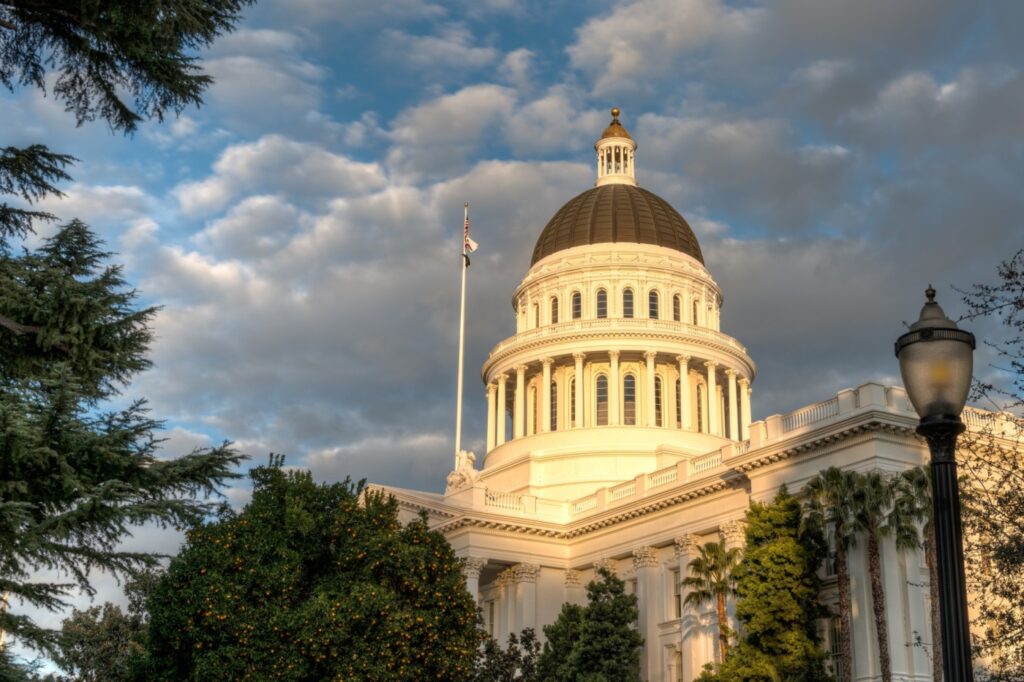
WASHINGTON, D.C. – There’s widespread agreement today that dysfunctional government policies often hinder California’s ability—and the nation’s—to grow and prosper. There are also many bipartisan calls to “start building again” and overcome barriers such as outdated regulations that can hurt the economy. Unfortunately, archaic policies and stagnant bureaucracies often hold back those efforts.
The root problem is that lawmakers and regulators regularly adopt a “set-it-and-forget-it” approach to government that locks in old policies and programs, meaning they grow stagnant and less effective over time. Regrettably, lawmakers rarely do anything about it.
While there is no single solution to this kind of “zombie government,” sunsets and sandboxes are two policy innovations that can help liberate California from old and cumbersome government regulations and rules. Sunsets pause or end rules or programs regularly to ensure they don’t grow stale. Sandboxes are policy experiments that allow for the temporary relaxation of regulations to see what approaches might work better.
We know from recent history that these policy innovations work. California’s response to the COVID-19 pandemic is the prime example. Lawmakers in the state passed a number of partial sunsets or exemptions that allowed illogical or outmoded rules and regulations to be relaxed so that people could make hand sanitizer, face masks and even serve to-go cocktails.
Sunsets like the ones used during the pandemic can take many forms, but require that government policies and programs are closed down on a regular timetable. For example, in 2019, Idaho shuttered its entire regulatory code and replaced it with a streamlined alternative.
Sandboxes, on the other hand, provide a policy testbed in which innovators can try new ideas under a more flexible set of rules. Sandbox approaches are catching on in many states because they give policymakers a chance to experiment with new legal and regulatory approaches and then tweak and improve policy accordingly.
Sunsets and sandboxes are needed because the government just won’t clean up its past messes. In 2017, analysts surveyed the entire U.S. Code of Federal Regulations to determine how often federal rules had been updated. Researchers found that 68 percent of regulations have never been updated and that 17 percent have been updated only once.
No business would survive if it refused to change its operating model, but governments engage in that sort of “build-and-freeze” approach all the time. California is no exception, which is why the Legislature created the Joint Sunset Review Committee in 2013 to address policies that have long outlived their usefulness.
Thus far, unfortunately, there’s been more talk than action, and most zombie laws and programs live on. “I don’t think it does anything,” said former Sen. John Moorlach, R-Costa Mesa. “I’ve heard rumors about it. Basically, it listens to bureaucrats and says, ‘OK, fine.”
Related Articles
Barbara Ferrer continues to stir up unsubstantiated fear about COVID
California must invest in forest management or risk squandering CO2 reductions
Biden’s student loan bailout will do nothing to address high college costs
Donald Trump versus the U.S. Constitution
What now for Newsom’s oil profits tax?
The committee produces reports, but rarely sunsets a regulation. California has more than 500 agencies, boards and commissions—and they rarely go away and few regulations ever are trimmed back. Instead, a convoluted thicket of red tape encumbers the efficient operation of government itself. This leads not only to a loss of economic dynamism and societal choices, but also to a growing dissatisfaction with public officials and agencies.
California is the most regulated state in the nation with nearly 400,000 regulations on the books. Just last year, Gov. Newsom signed 770 bills into law. Clearly, the state could gain from experimentation with sunsets and sandboxes. The response to COVID-19 showed what is possible when lawmakers are forced to act. But there is no need to wait for another crisis before restoring sanity to California government.
Sunsets and sandboxes are akin to regular spring cleaning—and it’s time to clean up old rules and regulations and clear the way for better, simpler government in the Golden State.
Adam Thierer is a Senior Fellow in the Technology and Innovation Policy program at the R Street Institute in Washington, D.C. Write to him at athierer@rstreet.org.
